Advances in technology like Electronic Health Records (EHRs) (or some call EMRs) have changed the way the healthcare industry operates. In the years before EHRs, medical records were 100% paper-based documents.
Although paper record-keeping is simple, widely accepted, and only requires a low cost for implementation, healthcare can be improved by the use of electronic records. In fact, paper records hinder the healthcare environment due to limited accessibility, illegibility, inability to access files remotely, and the cost of storing immense files. By adopting EHRs, providers have organized and accessible records. They are also supported by practice improvement tools, such as computerized prescribing and ordering tools, to provide more efficient and safer patient care. Among the original objectives behind the wide-spread implementation of EHR systems was for data analytics or informatics. Health systems and policy makers would be able to generate invaluable data over large populations of patients, permitting better, more efficient delivery of care, develop best practices and help facilitate the monumental shift from disease management to disease prevention – at least in theory . After some research and speaking with physicians anecdotally here is what we found out.
Decades after the introduction of EHRs, and despite the potential benefits they provide, some physicians continue to have a difficult time adopting EHRs. There are many different types of EHR systems available, some are not compatible to communicate with other systems and the user interface is confusing and time consuming.
Many physicians say that electronic health records cannot replace a doctor that actually knows the patient. Working with EHRs, physicians tend to spend less time on communication and valuable 1:1 time with patients, slowing down productivity.
One study at Dartmouth showed that physicians spend two hours on the EHR for every hour they spend with patients. Too often, the EHR seems better adapted to coding and billing, or collecting revenue, than excellence in patient care.Also, records can be skewed, or mis inputted so calling and actually talking to the previous doctor or running your own tests may be the best course of action. In contrast though, during a life-threatening event, the accessibility of Electronic Health Records can be lifesaving. By viewing a patient’s full medical history – allergies, blood type, past medical conditions — treatment decisions can be made quickly.
Medicine is an art dedicated to the care of patients; whose interests should always come first. In the right hands, an EHR can help patients get better care, but too often EHRs become ends in themselves, displacing patients as the center of medical attention. Patients and doctors will thrive only if we keep patients front and center.
With all the challenges presented here, there are some positives to note about having an EHR system. First, since EHRs are stored electronically, they can sometimes be accessed by different providers from different locations at different times. Providers are able to view the entirety of a patient’s medical history, track treatment plans, and more efficiently plan the course of care. Second, the use of patient portals — web-based platforms within EHRs, allow patients to review their medical records, progress notes, medications, and radiology results. Many times, patients are highly motivated to become more actively engaged in their care and web portals allow a simple method to do so. Lastly, more communication necessarily leads to improved care. Electronic Health Records alleviate the problems of lost files, paper trails and missed communications, which were more prevalent with paper-based methods of record-keeping. With the ability to view previous care plans, tests, and treatments, there is a lower chance of wasted time and resources repeating an unnecessary test or procedure.
There are many pros and cons of EHRs. As the healthcare industry continues to transform, these growing pains will ultimately resolve (if not replaced with new challenges). The steadfast focus, as always, should be reducing the clerical burden on providers of patient care while simultaneously improving safety, efficiency, communication, and patient engagement. How has your experience been? Feel free to comment on this blog and share your EHR journey .

